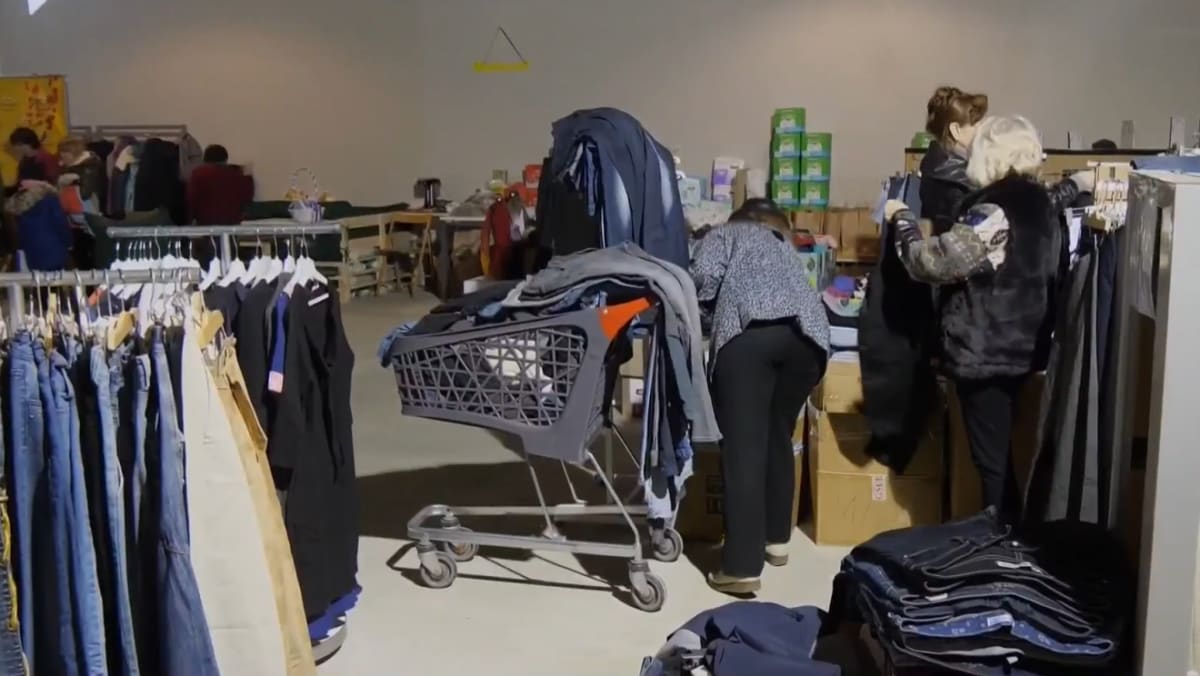Aid workers in Ukraine continue to provide help despite tough circumstances
The centre is designed to be a one-stop shop. People can receive items like clothes, cookware, toys and hygiene products. Legal and mental health services are also available.
The group said that providing assistance has gotten tougher.
“Of late, it is getting harder and harder to get aid. International NGOs are donating less to Kyiv as it is not an occupied city and not close to the frontlines, but Kyiv continues to receive refugees,” said project manager of the support centre, Ms Nataliia Leontieva.
However, the volunteers still find solace in what they do.
“Volunteering is a form of therapy for many of us here. Moreover, we have been brought together by a shared experience of being refugees. That grief has united us. Now, we have something that feels like a family,” said one volunteer among the roughly 100 volunteers at the centre, Ms Nataliia Anikieva.
She is from Mariupol, a port city now under Russian control, and has been working at the centre since June after being forced to leave her hometown.
THREAT TO AID WORKERS
NGOs on the ground have been adapting to the elements and changing nature of the conflict over the past year, as they attempt to help more than 5 million people in the country who remain internally displaced and more than 17 million in need of urgent humanitarian assistance.
Protection services, cash assistance and the distribution of winter items are among the ways the International Rescue Committee is currently helping local populations.
However, it has not all been smooth-sailing.
“We noticed a big change in autumn last year when the repeated and systematic attacks started on civilian infrastructure including supply systems for water, for power, for heating, for gas,” said the organisation’s Ukraine country director Marysia Zapasnik.
Thousands of homes have been damaged or destroyed across the country, leaving many humanitarian workers themselves directly impacted by the conflict.
ECONOMY IN TATTERS
Apart from the damage on homes, Russian missile attacks on critical infrastructure continue to hurt Ukraine’s economic output.
Ukraine’s economy contracted more than 30 per cent last year, with inflation soaring to more than 25 per cent.
Ukraine’s central bank expects the economy to expand about 0.3 per cent this year.
More robust growth is predicted in 2024, but for now the economic impact of the war will continue to bite.
The International Monetary Fund has warned the country could need more than US$40 billion in financial support this year.
For all the latest world News Click Here

